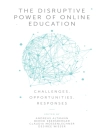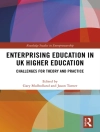Canadian Education: Governing Practices and Producing Subjects is an absolutely critical volume bridging a number of key areas in Canadian education – classroom politics, schools, teachers’ work, higher education, and much more – with the theoretical contributions of Michel Foucault. The result is illuminating, engaging, and critically provocative. The essays are carefully chosen and utilize Foucauldian concepts such as governmentality, discipline, subjectivity, and genealogy to excellent critical effect. With a skillfully crafted introduction that nicely brings the entire collection into sharp focus, the editors have provided a text that is a must read for critical scholars and students alike. Mona Gleason, Department of Educational Studies, University of British Columbia This excellent text presents a Foucauldian analysis of selected educational practices, contemporary reform initiatives, and current educational policy, in the Canadian context. The authors demonstrate how rich theoretical constructs such as bio-power, governmentality and disciplinary power can illuminate everyday practices and policies, making “the cultural unconscious apparent” (Fouacult, 1989, p. 71). Canadian Education: Governing Practices and Producing Subjects is essentially a hopeful book: it demonstrates the radicalizing role of theory as we try to understand and complicate educational structures and processes. This is an essential text for all those interested in Foucauldian analyses of education and a must read for undergraduate and graduate students in Canadian faculties of education. Anne M. Phelan, University of British Columbia This volume is most useful in the ways in which it achieves a close look and a wide sweep of education policy, its deployment and its effects, as these are embedded in schooling practices, educational strategies, and pedagogy. It offers the ground from which to consider the potential for education to be aimed at the development of a sociallyjust citizenry while also helping to reveal the structures of power and processes of social control that operate within current neoliberal technologies of governmentality. It is against these that reform-minded educators and curriculum and policy developers can set themselves. While theoretically complex and original in its conceptual approach, this book is also practically informative and eminently readable, making it useful to teachers, school administrators, education policy developers, parents, students, and communities at all levels of the schooling spectrum.” Magda Lewis, Ph D. Professor and Queen’s National Scholar, Queen’s University, Kingston. Magda Lewis, Ph.D. Professor and Queen’s National Scholar, Queen’s University, Kingston
Tabla de materias
Acknowledgements; Introduction; 1. Grade 12 or die: ‘Literacy Screening’ as a Tactic of Bio-power; 2. Foucault, Authority, and the Possibility of Curriculum Reform in Secondary School Science Education; 3. Partnering Power: Questions Posed from Governmentality; 4. Subjectivity and Discipline: Women Teachers and Contradictory Norms of Recognition; 5. Understanding the World Bank’s Education for All Policy as Neoliberal Governmentality; 6. Towards a Genealogy of Academic Freedom in Canadian Universities; 7. A Retrospective Look at the Social Construction of ‘Skilled’ Immigrant Workers in Ontario; 8. Counting In, Counting Out, and Accounting For: The Administrative Practices of Standardized Literacy Testing; About the Contributors; Index.












